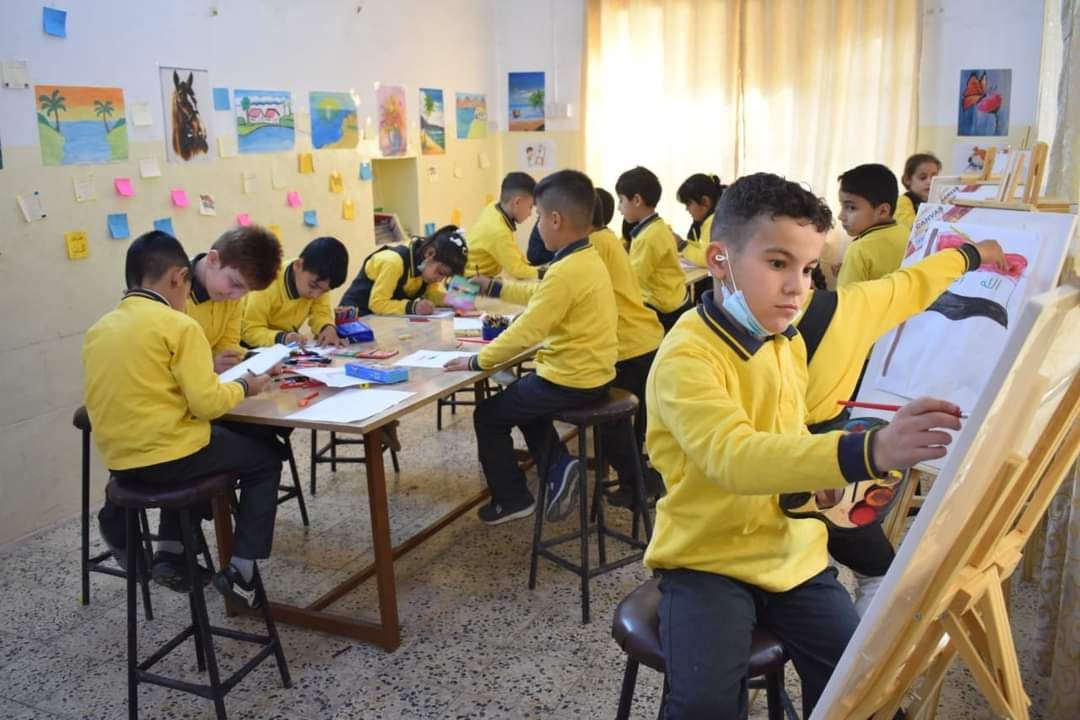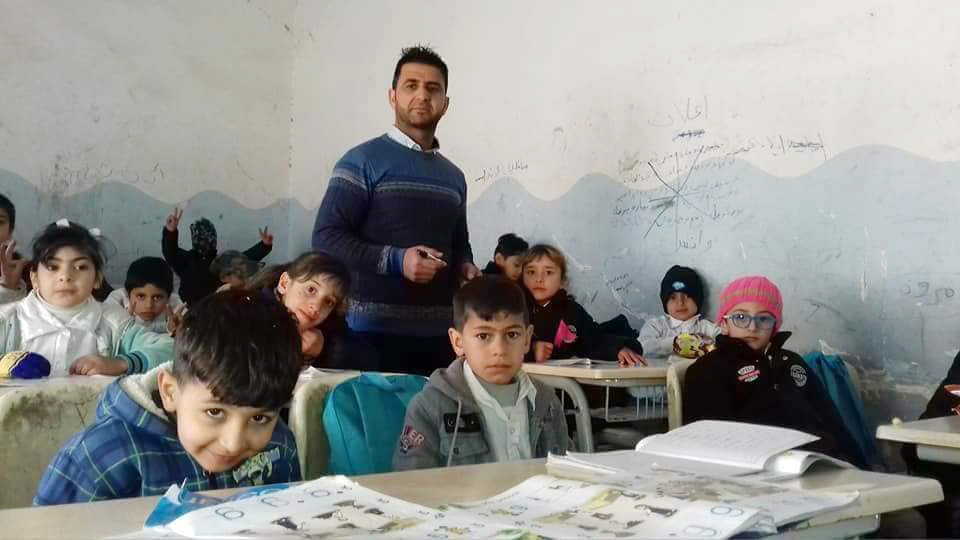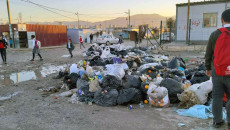Aws Adnan is preparing to enter the sixth grade of primary school in a private school in Tal Afar, where he has completed the past two years with good results.
“Studying here is different from the public schools I attended for three years. We study here in different ways using realia, completely different from public schools, in addition to daily recreational and sports activities,” said Aws, 12-years-old.
“In fact, I used to go to school for my parents' insistence, otherwise I would have quit, but now it's completely different. I feel sad during weekends and holidays and miss my classmates and teachers and all the pleasant times we spent together.”
With preparations for the start of the new academic year (2022-2023), hundreds of children like Aws are scheduled to continue their education in private schools in Tal Afar, for various reasons, including overcrowding in public schools.
“I am sure that private schools are much better than public schools, but financial capacity may prevent us from sending our children to these schools,” Adnan, Aws' father, told KirkukNow.
He has a younger brother, six-year-old Ahmad, who insists he attend the same private school, but his father is reluctant since he has to pay two monthly installments instead of one.
“I think Ahmad would like school as much as I do. If he is with me, we will fulfill our dreams together and open a hospital because he wants to become a doctor and I will become a pharmacist,” Aws says.
Education in Iraq used to be one of the best education systems in the region yet decades of conflict and under-investment in Iraq have destroyed the system. Iraq’s national budget has in the past years allocated less than 6% of its national budget to the education sector, placing Iraq at the bottom rank of Middle East countries.
Iraq’s infrastructure is in ruins in many parts of the country; one in every two schools is damaged and needs rehabilitation. A number of schools operate in multiple shifts in an attempt to accommodate as many students as possible, squeezing the little learning time that children have, a report by the UNICEF about education in Iraq has found in 2016.

110 public schools and five private schools for 50,000 students
There are 110 public schools in the center of Tal Afar district: 80 are primary and 30 are secondary and high schools, which together include 50,028 students, including 33,633 primary students and 16,395 secondary and high school students, said a source in the education of Tal Afar on the condition of anonymity.
Besides, there are 44 public primary schools in Ayaziya subdistrict, 82 in Zumar, 73 in Rabia, total 41 secondary and high schools in the three subdistricts of Tal Afar, for almost 35,000 students, Tal Afar education source said.
Regarding private education, there are five private schools in Tal Afar, each with between 200 and 300 students, with a total of about 1,250 students, the anonymous source added.
The source said private schools are a new experience and started in the 2018-2019 academic year, especially after the coronavirus and when private schools turned to e-learning, “the sector expanded.”
Paying tuition makes the student's parents more watchful for the success of their children
The people of Tal Afar district, which has a population of more than 524,000, according to the Ministry of Planning for 2019, were severely hurt by crimes committed by ISIS fighters against different religious and ethnic communities.
The center of Tal Afar, located 69 km northwest of Mosul in Ninewa province, has an estimated population of about 220,000, all of whom are Turkmens, while Arabs and Kurds live in districts and villages.
Majid Sulaiman, director of Ur Private School in Tal Afar, told Kirkuk Now, “We have 268 students and we expect that number to increase this year due to the high success achieved, 100% in classes 1-5 and 80-90% in class six.”
Among the reasons why citizens send their children to public schools, according to Sulaiman, is the small number of students in classes, with the provision of comfort, transportation, school-parents direct daily contacts, organizing various activities and following uniform system.
According to statistics obtained by KirkukNow from the Ninewa Education Department, about 2,500 schools were damaged by the fight against the Islamic State in Iraq and Syria ISIS.
“Using new and advanced methods in teaching and development of student’s ability and the availability of various activities have motivated some people to turn to private schools,” said Khalil Ali, a father of students in Tal Afar.
Ali thinks paying tuition fees will make parents more vigilant and try to make their children succeed, instead of having to resort to private lessons at the end of the year. “Final exams have shown that public schools are in a bad condition.”
The successive wars and disputes have affected education sector alike all other public services. The deterioration of free public education has pushed investors to launch private schools, local and international, which was warmly welcomed by middle and high classes all over Iraq including the disputed territories between Baghdad and Erbil.

Ninewa, 2018: A school belonging to the Turkmen Education Directorate. Directorate General of Education in Tal Afar
Is it a cultural or commercial project?
"Private schools are a positive and civilized step, they play a role in supporting education and reducing the pressure on public schools, while the financial capacity is weak to open new public schools to reduce the pressure," thinks Mohammed Abdulmun'im, a retired education supervisor.
He also believes that the private sector has a role to play in providing job opportunities for graduates who cannot be employed in the public sector and public schools.
"The Ministry of Education must constantly monitor private schools to see if they are suitable as an educational institution and comply with the curriculum and guidelines, so as not to turn into commercial projects away from education,” he proposes.
The situation in Tal Afar has not yet normalized to pre-war times and still 40% of its residents are displaced. Daesh committed atrocities in June 2014 when they controlled the town of Talafar. 1300 people were abducted: 700 men, 470 women and 130 children, among them 400-500 in ISIL controlled prisons in Syria, a statement by Turkmen civil society NGOs said last year.
The disputed territories consist of 14 administrative districts, including Talafar, spread across the four governorates of Ninewa, Kirkuk, Salahaddin and Diyala in northern Iraq.
Local officials said they are doing their utmost to restore proper public utilities to the war-torn Talafar which will receive extra 13 billion Iraqi dinars IQD (USD9 million) from Baghdad out of blocked allocation during ISIS era.
Aws' father says that after the outbreak of coronavirus and when schools turned to e-learning, the level of public education has declined further and weakened the trust of students' families it's not
"In addition to the high experience and ability of teachers and management of private schools, most of which are retired and have a lot of service in this field, experts and experts, unlike public schools that graduates of agriculture, law and institutes teach subjects that have nothing to do with their specialties.






